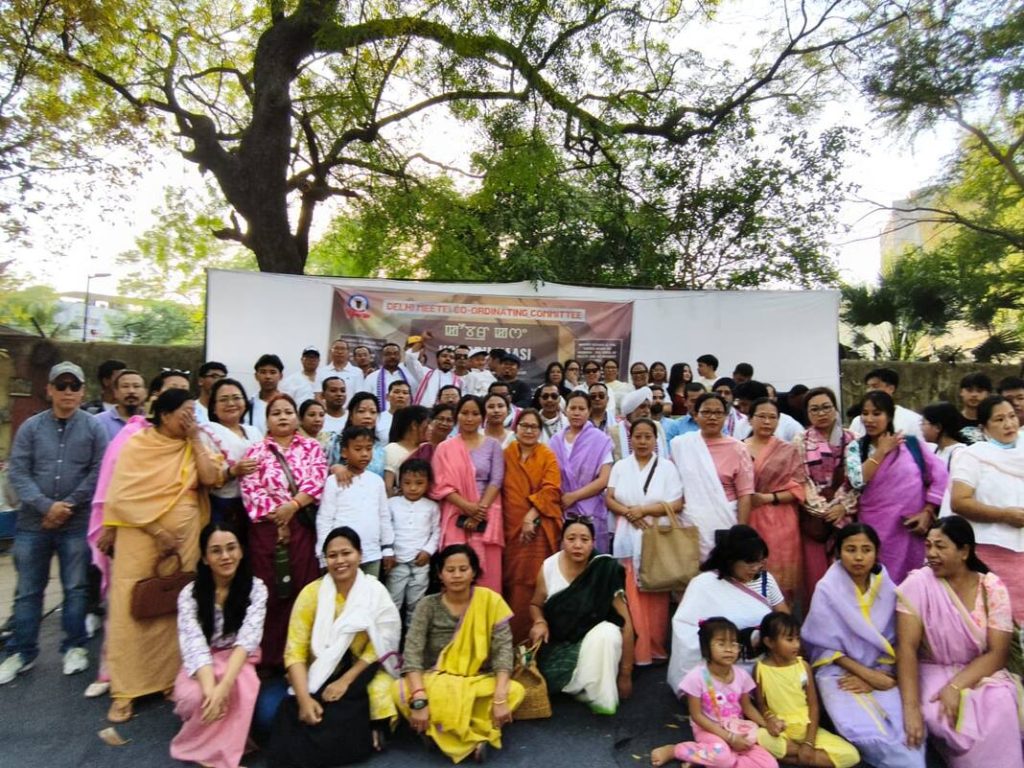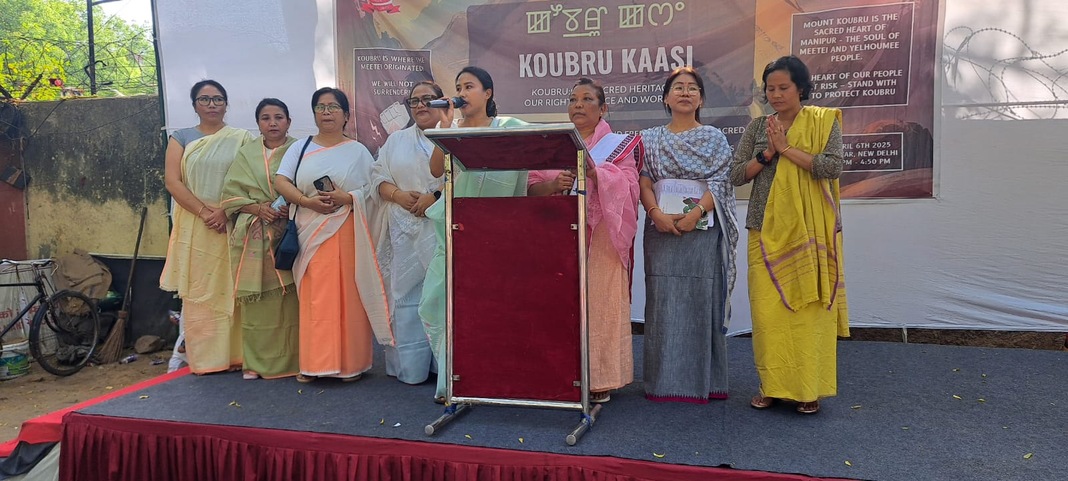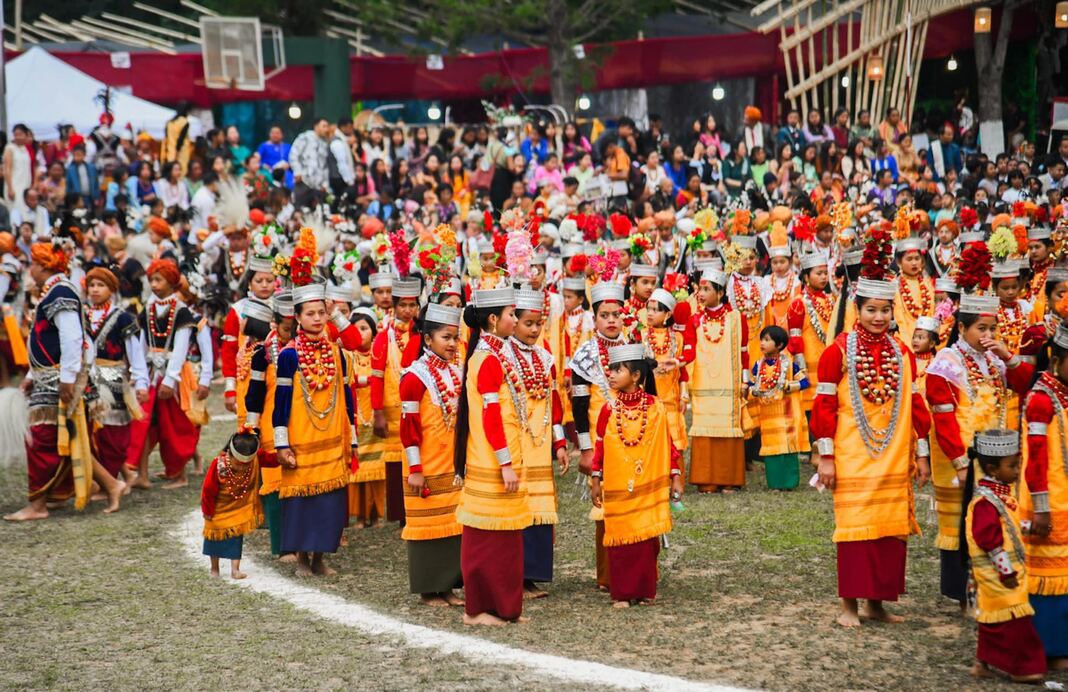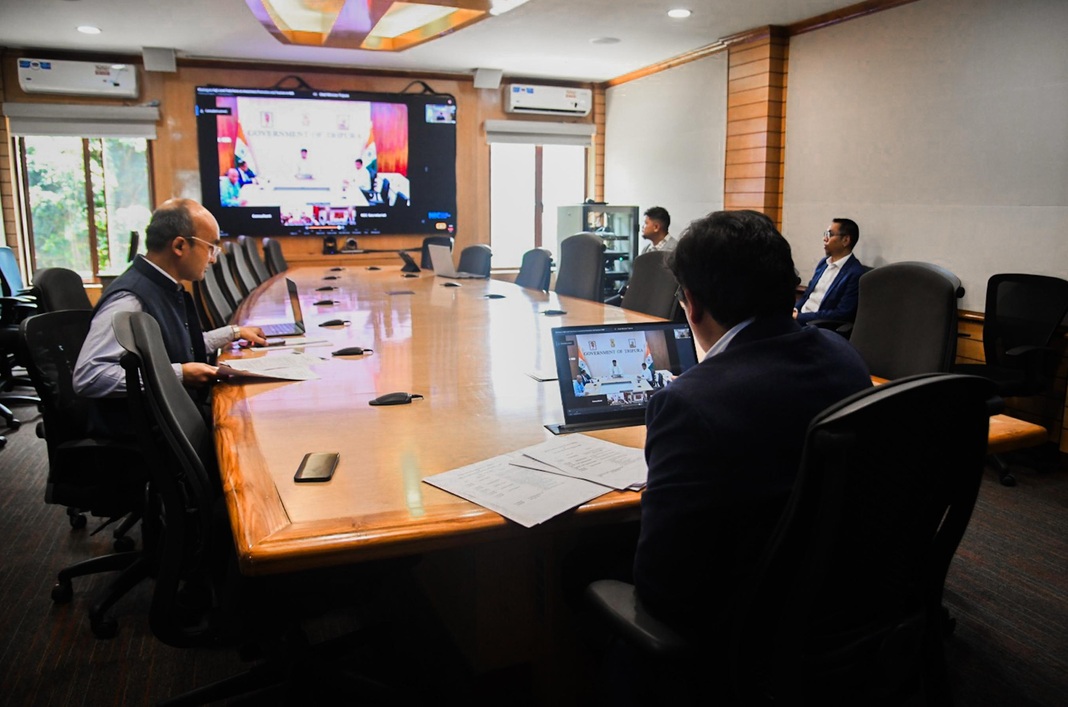
Guwahati, April 7: A powerful wave of protest and prayer swept through Jantar Mantar in New Delhi on Sunday as hundreds of Meetei activists, under the banner of the Delhi Meetei Coordinating Committee (DMCC), held a mass gathering titled “Koubru Kashi”—a spiritual and political call to reclaim Mount Koubru and other sacred sites from which the community has been forcibly barred for nearly two years.
From 2 pm to 5 pm, slogans, rituals, and solemn chants echoed across the protest site as demonstrators invoked the blessings of Eputhou Koubru, Eputhou Thangjing, Eputhou Wangpurel, and Eputhou Marjing—the guardian deities of the Sanamahi religion.

The gathering served as both a prayer meeting and political assertion, demanding that the Government of India uphold constitutional rights and stop the alleged collusion with armed groups that have restricted access to sacred Meetei land.
“Koubru Kashi”—translated as Let us ascend Mount Koubru—is more than a slogan. It’s a demand for dignity, survival, and spiritual sovereignty,” Naoren Liline Convenor, media coordinator, Women’s Wing, DMCC said. “We will go to our gods, with or without state protection.”
The Meetei community alleges that since May 3, 2023, they have been systematically denied access to sacred mountains and religious centres in Kangpokpi, Churachandpur, and Chandel districts, including Mount Koubru, the birthplace of Meetei civilization. These blockades, enforced by Kuki armed groups, are described as a coordinated assault on indigenous identity, spirituality, and rights, with the tacit approval of central and state forces.

In a statement, DMCC convenor Dr. Seram Rojesh said, “The Union government has failed to act. Even after imposing President’s Rule in Manipur and promising restoration of free movement during a high-level meeting chaired by Home Minister Amit Shah in March, ground realities haven’t changed,” said another protester. “Instead, the state has surrendered to extremist demands.”
Dr Rojesh described a distorted legal and territorial framework, where Meeteis—who have lived in Manipur for over 5,000 years—are now excluded from 92% of their ancestral land. Meanwhile, recently migrated Chin-Kuki groups are granted Scheduled Tribe status and expansive protections, resulting in what protesters call a historic and demographic injustice.
“The British-era division of hills and valleys is being weaponized against us. We are the indigenous people, yet we’re locked out of our hills, our temples, our gods,” Dr Rojesh said. “This is not coexistence—it’s cultural apartheid.”
In a strongly worded public declaration, DMCC stated: “We will never compromise. We cannot live without Koubru. This is not a cultural dispute—it is a matter of existence. Lakhs of Meeteis are ready to lay down their lives to defend Koubru, Thangjing, and Wangpurel.”

The group urged the Government of India to honour its own constitutional promises, remove all illegal restrictions on movement, and rebuild over 370 destroyed Umang Lai temples, more than 5,500 household Sanamahi shrines, over 40 Hindu temples, and several churches—all reportedly destroyed or desecrated during the ongoing conflict.
While the protest ended peacefully, its message was unmistakable: The clock is ticking. The Meeteis say they have waited long enough, trusted long enough, and abided by the rule of law long enough.
“We are not going to be silent anymore. Koubru is not just a mountain. It is our soul. If the state won’t act now, it may soon be too late for reconciliation.”
The protest marked a significant escalation in the national visibility of the Manipur crisis, spotlighting deep-rooted grievances, religious marginalization, and the urgent need for state accountability. Whether the government chooses to respond remains to be seen—but for the Meetei, the resolve is clear: “We will ascend Koubru. And we will not be stopped.”





